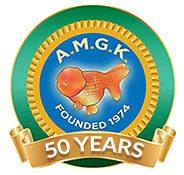
The Association of Midland Goldfish Keepers
The society comprises dedicated goldfish keepers committed to the care and breeding of goldfish

The Association of Midland Goldfish Keepers
The society comprises dedicated goldfish keepers committed to the care and breeding of goldfish